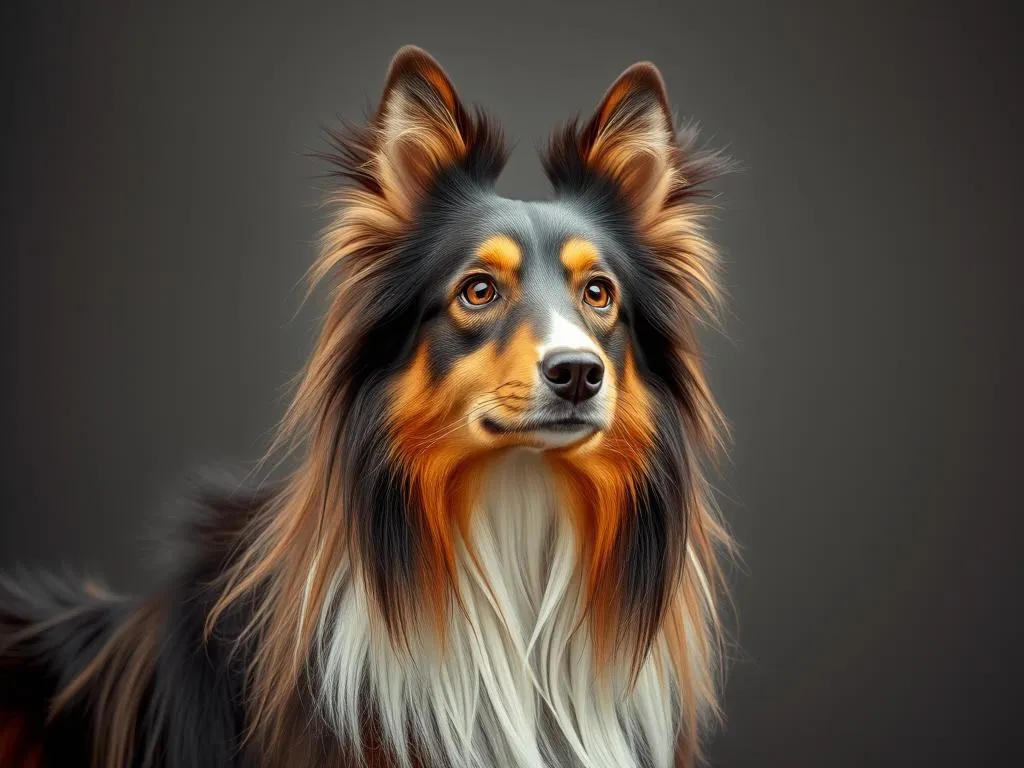
Introduction
Dog breeds come in various shapes, sizes, and temperaments, each with its unique charm and characteristics. For many potential dog owners, selecting the right breed is a significant decision that impacts their lifestyle, living conditions, and even health. One of the critical considerations in this decision-making process is the issue of hypoallergenic dogs. Hypoallergenic breeds are especially important for individuals and families affected by allergies, providing companionship without the sneezing and discomfort that can come with traditional dog ownership.
Among the many breeds available, the Shetland Sheepdog, commonly known as the Sheltie, often garners attention for its intelligence, loyalty, and striking appearance. However, a common question arises: are Shelties hypoallergenic? This article delves deep into the world of hypoallergenic dogs, particularly focusing on Shelties, to help you understand if they are a suitable option for allergy sufferers.
Understanding Hypoallergenic Dogs
Definition of Hypoallergenic
The term “hypoallergenic” refers to substances that are less likely to trigger allergic reactions. When it comes to dogs, hypoallergenic breeds are those that are believed to produce fewer allergens, such as dander, saliva, and urine. It’s essential to note that no dog breed is entirely free of allergens; rather, hypoallergenic breeds may produce lower levels, making them more tolerable for allergy sufferers.
Importance of Hypoallergenic Breeds
Hypoallergenic breeds can significantly benefit individuals with allergies. For those who suffer from pet-related allergies, owning a dog that produces fewer allergens can improve their quality of life, allowing them to enjoy the companionship of a pet without the adverse effects. This consideration is particularly crucial for families with children or elderly members, where exposure to allergens may lead to serious health concerns.
Dog Allergy Basics
Causes of Dog Allergies
Dog allergies typically stem from allergens found in dog dander, saliva, and urine. The proteins in these substances can trigger immune responses in sensitive individuals, leading to symptoms like sneezing, itching, and respiratory issues. Some dog breeds, particularly those with hair instead of fur, tend to shed less dander and hair, potentially reducing the likelihood of allergic reactions.
Symptoms of Dog Allergies
Common symptoms experienced by allergy sufferers include:
- Sneezing
- Nasal congestion
- Itchy or watery eyes
- Skin rashes or hives
- Coughing or wheezing
If you are considering bringing a dog into your home and have a history of allergies, it’s wise to consult with an allergist and spend time with the breed you’re considering to gauge your reaction.
Overview of Shetland Sheepdogs (Shelties)
Breed Characteristics
The Shetland Sheepdog, or Sheltie, originates from the Shetland Islands of Scotland, where they were bred primarily for herding livestock. These dogs are known for their striking appearance, featuring a long, flowing double coat that comes in a variety of colors, including sable, black, and blue merle. Adult Shelties typically weigh between 20-40 pounds and stand about 13-16 inches tall at the shoulder.
Temperament and Behavior
Known for their intelligence and eagerness to please, Shelties are often described as affectionate and loyal companions. They tend to be good with children, making them a popular choice for families. Additionally, their gentle demeanor and trainability make them suitable for singles and seniors alike. However, they may exhibit herding tendencies, leading them to nip or chase smaller pets, so proper training and socialization are essential.
Are Shelties Hypoallergenic?
Shelties and Their Coat
The coat of a Sheltie is one of its most defining features. They have a double coat, with a soft undercoat and a longer outer coat that sheds throughout the year, particularly during seasonal changes. While Shelties do shed, their dander levels may be lower compared to other breeds, leading some to wonder if they are hypoallergenic.
Comparing Shelties with Other Breeds
When comparing Shelties to other hypoallergenic breeds, such as Poodles or Bichon Frises, it’s important to note that Shelties might not be the best option for those with severe allergies. While they can be a better choice than many other breeds, the shedding and dander produced by their double coat can still trigger reactions in sensitive individuals.
Personal Experiences and Testimonials
Many Sheltie owners with allergies have reported varying degrees of sensitivity. Some individuals find that their symptoms are manageable with regular grooming and cleaning routines, while others may experience more severe reactions. Anecdotal evidence suggests that spending time around Shelties before committing to ownership is crucial for allergy sufferers. Additionally, veterinarians often advise potential owners to consider their allergy history and spend time with the breed before making a final decision.
Caring for Shelties if You Have Allergies
Grooming Tips
Regular grooming is essential for maintaining a Sheltie’s coat and minimizing allergens. Here are some grooming tips:
- Brush regularly: Aim for at least once a week, using a slicker brush and an undercoat rake to remove loose hair and dander.
- Frequent baths: Bathing your Sheltie every 4-6 weeks can help reduce dander buildup, but avoid over-bathing as it can dry out their skin.
- Professional grooming: Consider hiring a groomer who specializes in Shelties to ensure proper coat maintenance.
Home Environment Adjustments
Creating an allergy-friendly home is vital for those with sensitivities. Here are some tips:
- Air filtration: Invest in HEPA air filters to reduce airborne allergens in your home.
- Cleaning routines: Regular vacuuming with a HEPA filter vacuum and frequent dusting can help minimize allergens.
- Designated pet areas: Keep your Sheltie out of bedrooms and off furniture to create allergen-free zones.
Other Dog Breeds to Consider
Hypoallergenic Breeds Overview
If you’re still uncertain about Shelties and their hypoallergenic status, there are several other breeds that are generally considered hypoallergenic. Here’s a brief overview:
- Poodle: Available in standard, miniature, and toy sizes, Poodles have a curly coat that traps dander and hair, reducing allergens in the home.
- Bichon Frise: Known for their playful demeanor, Bichon Frises have a soft, curly coat that requires regular grooming but produces minimal dander.
- Maltese: This small breed has a long, silky coat that requires grooming but is less likely to trigger allergies.
Selecting the Right Breed
When choosing a dog breed as an allergy sufferer, consider factors such as:
- Temperament: Look for breeds that are known for their calm and gentle nature.
- Size: Smaller breeds may be easier to manage in a home environment.
- Activity level: Ensure the breed’s energy levels align with your lifestyle to maintain a harmonious household.
Conclusion
In summary, the question of whether Shelties are hypoallergenic is nuanced. While they may produce fewer allergens than many other breeds, their double coat and shedding can still pose challenges for allergy sufferers. Understanding the specific needs of Shelties, along with proper grooming and home management practices, can help mitigate allergic reactions.
Ultimately, choosing the right dog breed involves careful consideration of your lifestyle, living situation, and health needs. If you’re drawn to the intelligence and affectionate nature of Shelties, a trial period with the breed can help you determine if they are the right fit for you.
FAQs
Common Questions about Shelties and Hypoallergenic Dogs
Are Shelties good with kids?
Yes, Shelties are known for their gentle temperament and are generally good with children, making them a great family pet.
How much do Shelties shed?
Shelties shed moderately, especially during seasonal changes, due to their double coat. Regular grooming helps manage shedding.
Can someone with severe allergies have a Sheltie?
While some allergy sufferers can tolerate Shelties, those with severe allergies may find that their dander and shedding trigger reactions.
What are the best hypoallergenic dog breeds for families?
Breeds like Poodles, Bichon Frises, and Maltese are often recommended for families with allergies due to their lower dander production.









